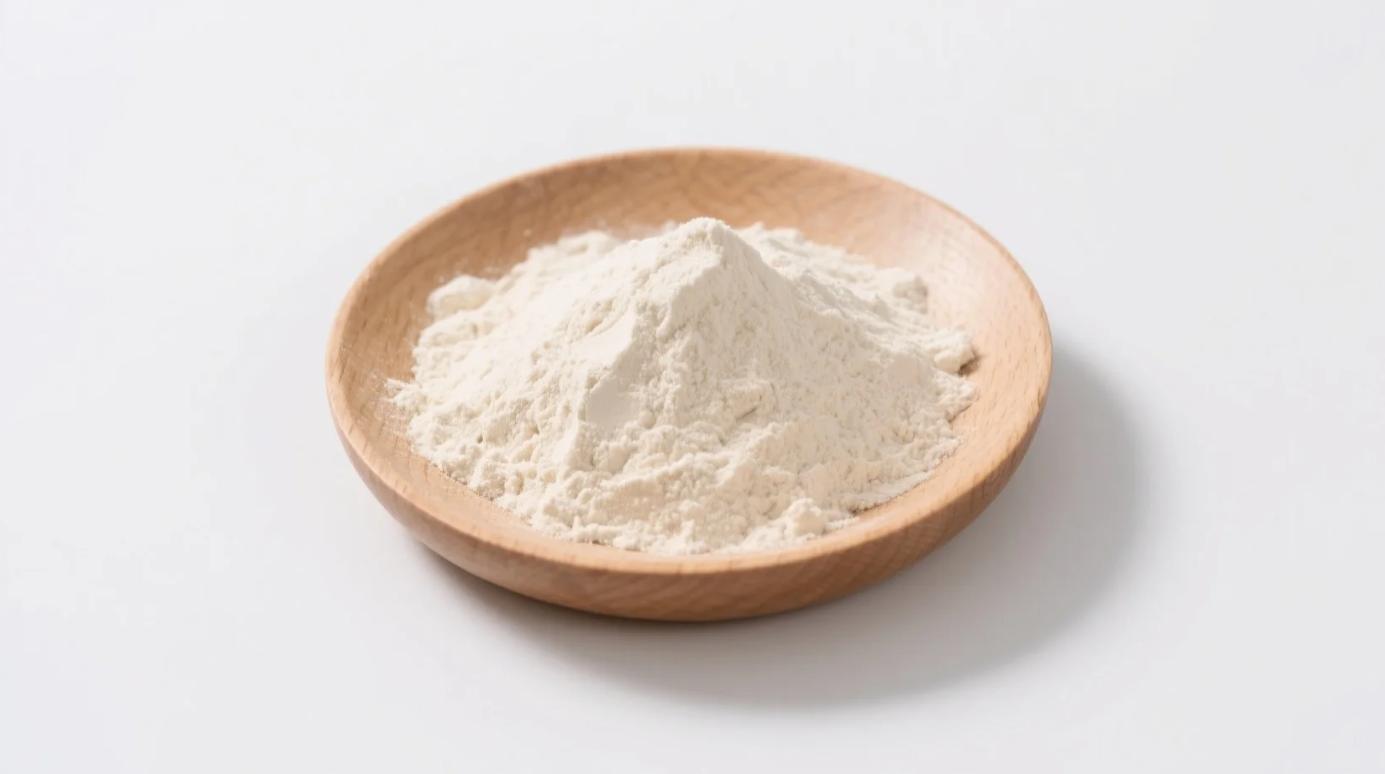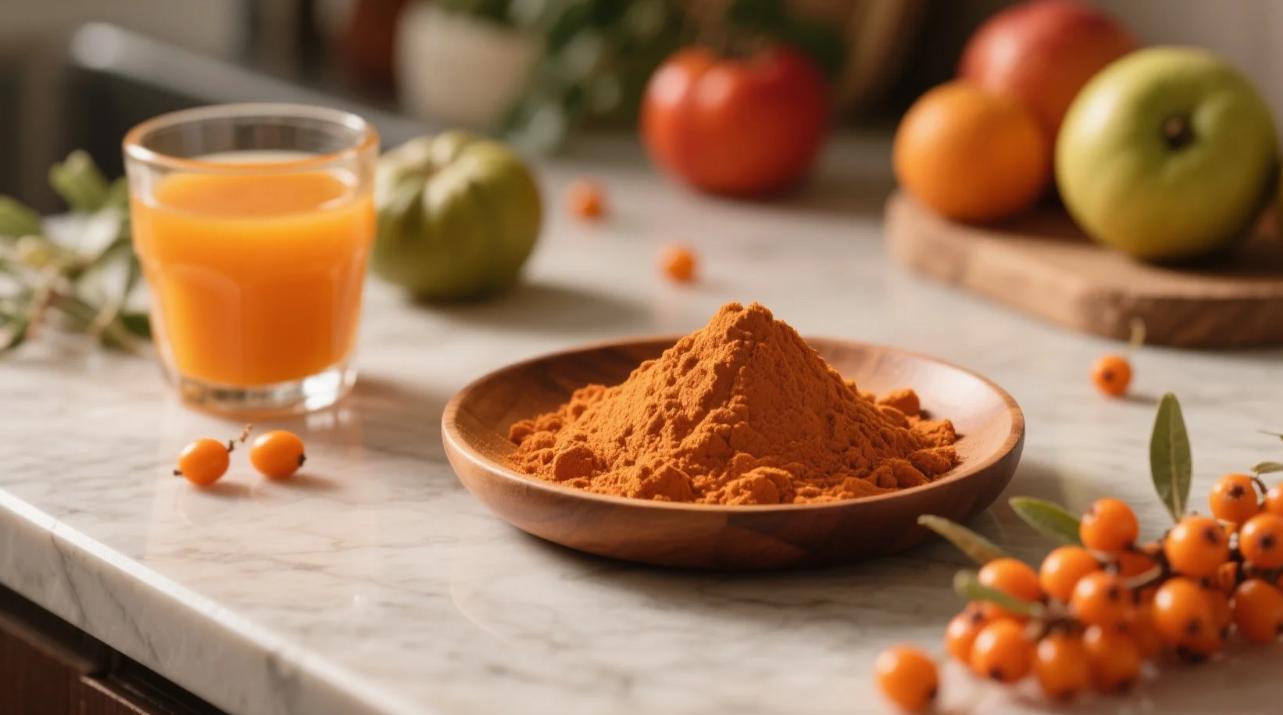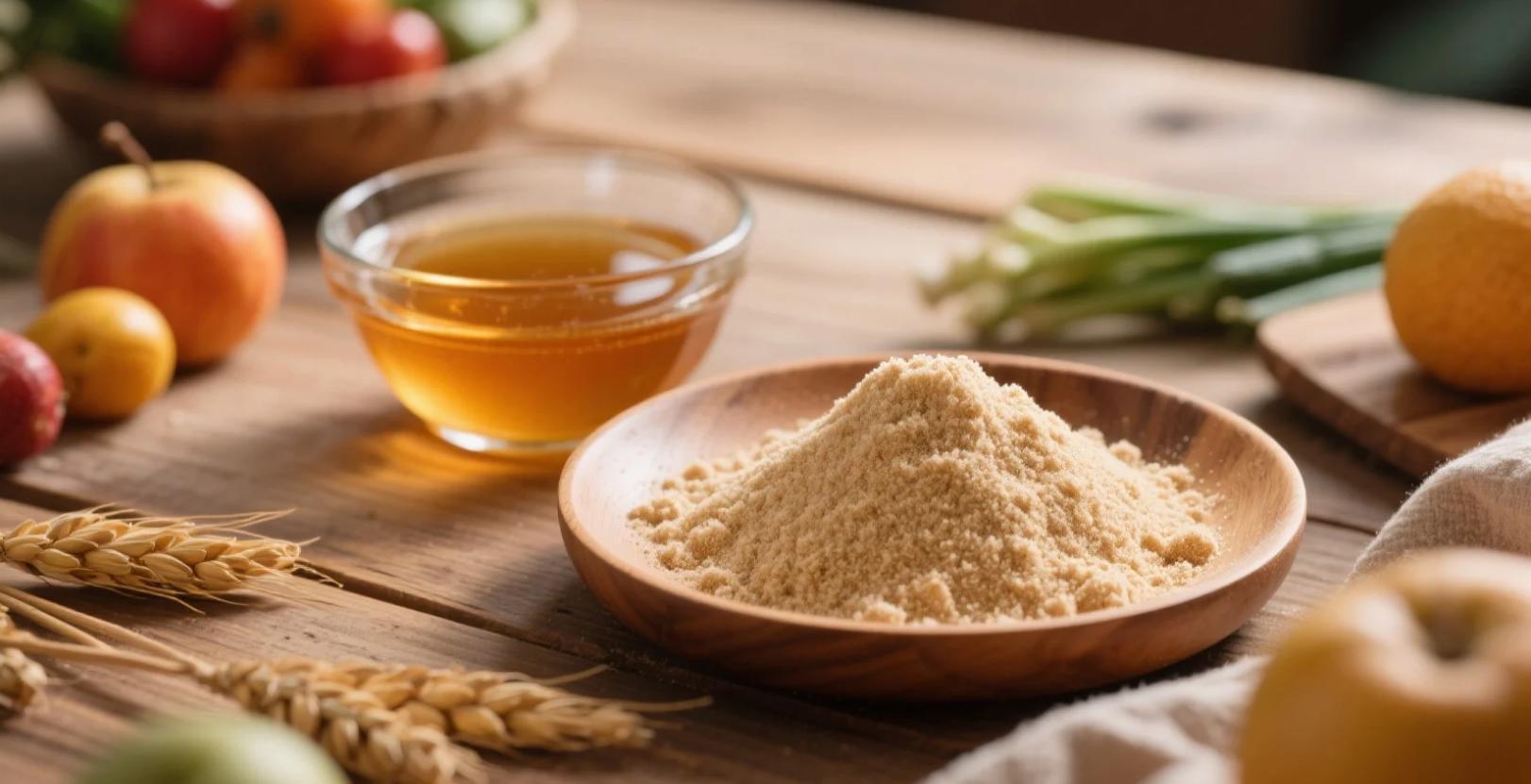Table of Contents
Yams, the vibrant tuber celebrated in traditional medicine and modern kitchens alike, often spark debate: Are they a diabetic-friendly carb or a hidden sugar bomb? Let’s unravel the science behind organic yam powder—its impact on blood sugar, who benefits most, and why “organic” matters for metabolic health.
Yam’s Blood Sugar Paradox: Carb vs. Resistant Starch
Yams contain resistant starch, a unique type of carbohydrate that behaves more like fiber than sugar. Here’s how it works:
- Slow Digestion: Resistant starch bypasses small intestine absorption, fermenting in the colon to feed gut bacteria.
- Glycemic Impact: Organic yam powder has a low glycemic index (GI 35–50), causing slower, gentler blood sugar rises compared to white potatoes (GI 78–111).
- Clinical Evidence: A 2023 study found yam extract reduced post-meal glucose spikes by 22% in prediabetic adults.
Organic Yam Powder vs. Regular Yam: Key Differences
| Factor | Organic Yam Powder | Conventional Yam Powder |
|---|---|---|
| Pesticides | Zero residues (USDA-certified) | Risk of chlorpyrifos and glyphosate |
| Nutrient Retention | Higher antioxidants (diosgenin, vitamin C) | Heat processing degrades nutrients |
| Blood Sugar Impact | Lower GI (intact resistant starch) | May spike glucose due to additives |
| Sustainability | Supports regenerative farming | Often linked to soil depletion |
Who Benefits from Organic Yam Powder?
- Diabetics & Prediabetics:
- Swap refined flours with yam powder in baking (try 25% substitution in bread).
- Pair with cinnamon or fenugreek to further stabilize glucose.
- Gut Health Seekers:
- Resistant starch boosts butyrate production, reducing inflammation.
- Menopausal Women:
- Yam’s diosgenin (a phytoestrogen) may ease hot flashes without impacting hormones like soy.
3 Yam Myths Debunked
Myth 1: “Yams are just like sweet potatoes.”
Truth: Yams have 2x more fiber and 30% less sugar than sweet potatoes.
Myth 2: “Cooking yams destroys nutrients.”
Truth: Lightly steaming or dehydrating (as in organic powder) preserves 90% of antioxidants.
Myth 3: “Yam raises insulin resistance.”
Truth: Animal studies show yam extract improves insulin sensitivity by activating AMPK enzymes.
Who Should Avoid Yam?
- Oxalate-Sensitive Individuals: Yams contain oxalates, which may worsen kidney stones.
- Low-Carb/Keto Dieters: 20g net carbs per ¼ cup powder can disrupt ketosis.
- Allergy Alert: Rare, but avoid if allergic to dioscorea species.
How to Use Organic Yam Powder Without Spiking Glucose
- Golden Milk Latte: Blend 1 tsp with turmeric, ginger, and almond milk.
- Baking Hack: Replace 25% of flour in pancakes or muffins.
- Savory Soups: Thicken broth while adding prebiotic fiber.
Pro Tip: Add apple cider vinegar to recipes—acidity slows starch-to-sugar conversion.
Why “Organic” Is Non-Negotiable
Conventional yams rank high on the “Dirty Dozen” list for pesticide residues. Organic yam powder ensures: ✅ No neurotoxic chemicals (linked to insulin resistance)
✅ Higher diosgenin content (key for blood sugar balance)
✅ Ethical farming (preserves soil health for nutrient-dense crops)
Organic yam powder isn’t a free pass for unlimited carbs, but its resistant starch and low GI make it a smart choice for balanced blood sugar. Paired with protein and healthy fats, it’s a metabolic ally—not an enemy.
Recommended Product
Organic Yam Powder
Appearance: White Fine PowderDrying Method: Spray Drying, Freeze Drying Specification: 100% Pure Organic Yam Powder,…


